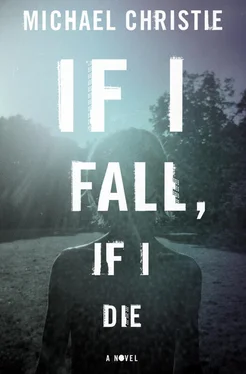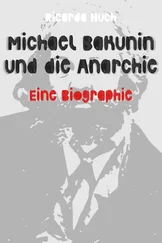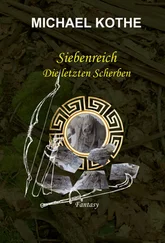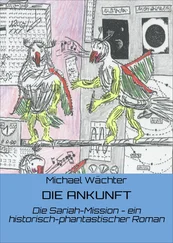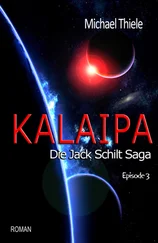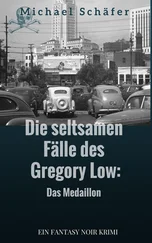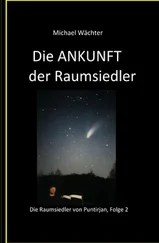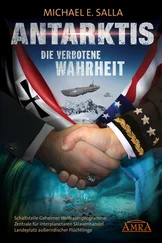One night, they were fingerprinting Marcus’s grid when Enoch came over to their worktable after an hour of grunting beneath his barbells. “Why’re you tools putting makeup on that map?” he said, breathing hard, toweling his face with a shirt.
“It’s not a …,” Will said, before locking eyes with Jonah.
“ ’Cept it doesn’t have any fucking street names on it,” Enoch continued. “Some map. But looks like the harborfront, to me. That’s the only part of this shit-pile town built in a grid.”
September arrived the following week and demanded their begrudging return to school. The boys claimed the rearmost desks, where they whispered about the map they’d yet to decipher and the byzantine skateboard tricks they would someday master. Their new teacher, Mrs. Gustavson, wore a beach-worth of shell jewelry, smiled emptily, and spouted in a sugary voice lots of his mother’s words, like creativity, gifted , and self-esteem . Will trusted her about as far as his mother could go for a jog.
In the first week, when Will was picking up an exercise he’d narrowly passed from her desk, he said, “Thanks Mom,” instantly scorching himself with embarrassment.
At recess, Mrs. Gustavson asked him to stay behind. “I couldn’t help but notice what you said there,” she said.
“Yeah, sorry,” said Will. “Old habit.”
“Oh, I don’t mind. In fact, I’m quite flattered,” she said, pausing as if something was sinking in other than the death knell of boredom and the senseless squander of recess time.
“You know, Will,” she continued, “I must confess something to you. I’m a great admirer of your mother’s work. And your father’s, of course. But I saw The Sky in Here when I was in university, and it made an indelible impression on me,” she said, as though they were sharing some great secret.
“I’ve never seen it.”
“Really?” she said, shocked. “But you must be very close?”
“You could say that.”
“Well, she’s modest, I’m sure. But I know some people who will be very pleased to hear Diane Cardiel is safe and sound and back living in Thunder Bay. She must love having a bright, creative fellow like you around the house,” she said, smiling falsely, and Will bristled. Jonah had more creativity in his right leg than all the students at his school combined, and though she was brand new, Mrs. Gustavson already acted as if he wasn’t there.
“Is this over yet?” Will said, wounding her visibly, before racing outside to find Jonah.
Now that they were in the seventh grade, their classmates talked of group trips to the roller rink and declared doomed loves in bubble-lettered notes and three-party phone calls. None mentioned how last year’s grade eights had disappeared like planes into the clouds of high school, an ascendancy death-like in its impenetrability. Happily, the mysteries of what to wear and say and when to put your arm around a girl and how to properly manage a vagina were of zero relevance to Will and Jonah, who were content with the mystery of Marcus and how, exactly, one could possibly ollie over a fire hydrant.
To endure the flavorless hours, the boys reacquired the necessary talent of kill-switching their minds, slowing their pulses, holing up in private mental dens. They perfected a communication exclusive to their eyebrows, while lazily doodling skateboard graphics and complex ramp arrangements on their velcro-flapped binders. In class they were cheetahs napping, borderline catatonic, preparing for the bell’s merciful peal.
At lunch they shunned the cafeteria to go skateboarding off school property. These days Will could manage the occasional weak ollie — the trick’s true alchemy still outpacing his understanding. There in the parking lot of the grocery store that still delivered his mother’s food, Will drank a throat-searing two-liter carton of iced tea while Jonah practiced heelflips, landing again and again on his sideways board, folding his feet in half and pouring himself to the oily ground.
“You always get the same thing,” said Jonah, “ice tea and salt-and-vinegar chips.”
“I know what I like,” said Will, though the truth was the towering neon of the grocery shelves and the sheer glut of choice they presented baffled him. While they ate, some high-school-age hockey players shouted “Skater fags!” from a gunning pickup truck, almost obligatorily, kept at bay only by the fearsome legend of the Turtle Brothers. Rather than the designer sweatshirts and safety pin — tapered jeans of their peers, the boys donned the flannel button-ups and work pants that abounded in Thunder Bay’s thrift stores. The pants were constructed with thick polyester that survived their worst spills and were cheap to replace when they didn’t. At school, hockey players had started to sneak up behind Will to yank his pants down, so they both wore webbed belts cinched tight around their bruised hips, even though Jonah was never subjected to the indignity.
After school, with the map folded deep in Jonah’s backpack, the two ventured downtown, into the crannies of the city that no upright citizen had reason to frequent: loading bays, alleys, abandoned industrial buildings, check-cashing places, the parking lots of windowless strip clubs, closed gas stations, and listless strip malls. The concrete and the bustle brought forth new memories of days spent careening around Toronto with his mother, the glint of subways, the towering buildings, his hand caught warm in hers.
“So if the lines are streets, the X s must signify something, because there are like thirty of them,” said Will, sitting on a bench, turning the map over and over in an attempt to orient themselves. “But what could be possibly valuable enough for Marcus to use it to leave Thunder Bay forever?”
“Ain’t no buried treasure anywhere down here, Long John Silver,” Jonah said, gesturing to a squalid apartment block with crotch-yellowed underwear hanging from the window like the flags of surrender.
Will had made no mention of the solemn promise to his mother he was breaking by coming to the waterfront. But he’d seen plenty of boys his age walking around, and none of them looked immediately endangered.
“Think we need to worry about the Butler’s wolves?” Will said later, fighting again to keep the image of a fanged snout clamping over his other thigh from his mind. Lately, each time he left the house, he’d been liberally dousing his entire body with deodorant, in the hopes it would mask his scent.
“Bah, we’re small potatoes,” said Jonah. “Plus we can outrun his wolves on our boards.”
They tried penciling various street names onto the lines, but, frustratingly, downtown Thunder Bay was a grid with no defining abnormalities. Each time they thought they’d located an X , what they found was uniformly unremarkable and decrepit: another abandoned building with an old, plateless car parked out front. The boys rifled the glove boxes of the cars and staked out the buildings with no luck. “Some treasure,” Jonah said.
But when riding his skateboard, even the “rusty ruin” of Thunder Bay sparkled with vitality and potential in Will’s eyes. While investigating the map, they happened over perfect skateboard terrain: painted curbs surrounded by smooth concrete and perfect sets of stairs with no cracks at the top, where the boys would return again and again after security guards had shooed them away. Surfers rode waves, which were already beautiful, but skateboarders made things beautiful: the ugly, discarded nooks and leftovers of a place, the abandoned, unused architecture that people preferred to ignore. Beneath their wheels, these dead places became sites of wonder.
Читать дальше
